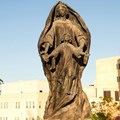A South African's guide to moving to and making it in Malta: Ahoy! Blockchain Island

In February, Malta presented a policy document drafted for the purpose of introducing blockchain regulation and the creation of the Digital Innovation Authority. According to Malta-based professional policy analyst Dennis Avorin, it appears as if the island state was right on time, just as it was when remote gaming regulations were introduced in 2004.
Put simply, blockchain, also called digital ledger technology (DLT), is a digital distributed public ledger system. It can be used for recording groups of transactions, the so-called ‘blocks’, by linking them together into a cryptographic linear chain. Thus, making every former transaction known throughout the chain.
The Malta Digital Innovation Authority will provide certainty in this field of legal vacuum and be able to certify DLT platforms and provide a framework for ICOs that the industry can trust.
This has now prompted the largest cryptocurrency exchange, Binance, to decide on a relocation to Malta. Binance handles a daily volume of transactions averaging approximately $1.6bn. Recently it was also announced that OKEx, with its $1.5bn in daily trading volumes, is planning on relocation.
With such players setting up their shingle on the islands, Bloomberg has reported that Malta is on track to become a blockchain hub.
First i-gaming, now blockchain
The business opportunities surrounding this technology is envisaged to grow as large as the current i-gaming sector within five years. While this might seem a bit optimistic, few understand what blockchain really means for the future.
The hype has so far mostly attracted the interest of bedroom speculators trying to make a quick buck, notes Avorin. However, in the long run, the utility of blockchains will eventually amaze even the most stubborn technophobes.One of the key properties following from this structure is its immutability. It is not possible to tamper with a blockchain, which results in trust being built into the very system.
Political and social emancipation
Malta’s embrace of blockchain is even envisaged to help undocumented refugees to be able to verify their education through a programme developed by the startup, Learning Machine and MIT Media Lab. It has already been launched at Mcast and ITS.
Although according to Avorin these are “delightful” developments and we have yet only seen a fraction of the potential of blockchain and DLT technology unfold. The World Bank has for instance concluded in a study that DLT might partially or entirely replace government and the State as the agent behind identity authentication, certificates, land titles, health record storing, dissemination of social benefits and the management of democratic votes.
In other words, blockchain carries potential for political as well as social emancipation that has yet not been feasible or practically manageable across human societies. With the bold move to introduce regulations for blockchain, Malta has now positioned itself at the centre of this emancipation.
New paradigm, old ways
Certainly, the attractiveness of launching an ICO is without doubt grounded in the fact that it is unregulated and a much easier way of raising capital for a business than going through an IPO. But there are also technological advantages and all related benefits of the new paradigm of peer-to-peer transactions without the use of intermediaries.
Come November, Maltese Prime Minister Joseph Muscat is already confirmed as one of the keynote speakers at the Blockchain Summit, as is Miko Matsumura, the founder of Evercoin.
Driven by Malta’s government, this leap into the future of innovative fintech is somewhat anachronistic on the sunny little archipelago that sometimes feels like the island that time forgot. When this global gathering of tech pioneers descends on the archipelago, I wonder if they will also, like me, feel the laws of time and space bend when they find you can fill your tank with petrol and still pay with a cheque!







